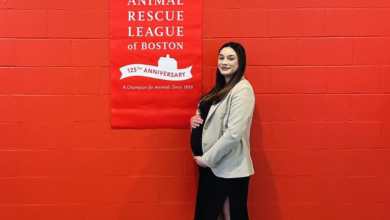My Journey Without My Mother Part-2: A Memoir

By Upendra Mishra
BOSTON—The day I learned that my real mother had passed away when I was about two years old, and that Amma was not my biological mother, my world shifted in an instant.
What had once felt like a magical childhood, full of love, warmth, and excitement, suddenly became a stark, dark, and lonely existence. Although I was only seven or eight when I uncovered this truth, it was as if my entire universe had been turned upside down. I can still recall that seismic shift. Everything I had once believed to be true and real now felt like a lie.

The behavior of the people around me suddenly made sense. Their pity, the intense love, and the sympathetic looks they often cast my way became clearer. Even the way my elementary school teachers treated me began to unravel. Everything, it seemed, was built on a false foundation.
That fateful day in the mango orchard dramatically altered my relationship with Amma. I must admit, despite calling her Amma and being encouraged by my family to do so, I had never felt the deep, natural love that my cousins shared with their own mothers.
Related: Part-1
My Journey Without My Mother Part-1: A Memoir
My bond with Amma had always felt more transactional than maternal. I would place my clothes in her room, and if anyone gave me money or gifts, I would hand them to her. She kept my belongings in a small, brown leather trunk. If I ever needed something, I would retrieve it myself. Our conversations were few, and rarely did we share any moments of warmth. I never slept in her bed, not even when I was sick or running a fever. At the time, I never questioned these emotions. I simply believed she was my mother.
But after the revelation in the mango orchard, I began to recognize the distance between Amma and me more clearly. Although I still respected her, the space between us had grown exponentially. I understood, even at such a young age, that I had no mother in the way that others did—and that I couldn’t turn to anyone in my family for comfort. Something inside me shifted. A sense of loneliness and fear crept in. I couldn’t trust anyone anymore. Why had they all kept such a monumental truth from me?
With this painful insight, however, came the birth of a rebellion inside me. I no longer accepted things as they were. I wanted to escape, to leave my world behind. One day, in an explosion of anger—though I can’t remember exactly what triggered it—Amma threw all my belongings out into the anagan (internal courtyard). Clothes, schoolbooks, notebooks, sandals—everything scattered on the ground. I stood there in shock, not knowing what to do. But despite my confusion and hurt, not a single tear fell from my eyes.
That day, I decided to run away. I longed to escape from my village, from everything that had once been my home. I had heard stories of Lucknow from my family—about how far it was and how long it would take to reach by train from the nearby Bhatani railway station. I imagined Lucknow as just another village, like my own, and thought I would easily find my aunt and uncle once I arrived.
My aunt had always been a close confidante. She became a surrogate mother to me later on, taking me in during my high school and college years. My real mother and my aunt had been best friends, and they were the same age. It was only later that I learned my aunt, too, had lost her mother at an early age and was raised by her stepmother. She could relate to my pain of growing up without a real mother, and she showered me with affection and sympathy. She didn’t want me to endure the same loneliness that had plagued her childhood.
That morning, when Amma threw my belongings out, I quietly left my village. Without telling anyone, I set off for Bhatani. I walked about two miles, convinced that all trains led to Lucknow. My plan was simple: board the first train that came into the station. But just as I neared the railway station, I felt a hand on my back. It was one of my uncles, who had been alerted that I was headed toward Bhatani. He had grabbed his bicycle and ridden after me. He caught up with me just before I could board the train.
I often think about what would have happened if I had boarded that train. What if I had arrived in Lucknow and found no one? What would my life have been like then? The thought of it scares me. I console myself, though, that destiny had a plan for me.
When I returned to the village, Amma had placed all my belongings back in her room. I resumed my usual, transactional relationship with her. But the distance between us continued to grow, and I became closer to the servants and workers who helped around the house and farm. I also developed a deep connection to nature. The mango tree in our orchard became my constant companion, and the river that ran through our village became a place of solace.
Whenever I felt sad or needed to be alone with my thoughts, I would wander along the riverbank. I would walk for hours, sometimes sitting quietly on the edge, watching the water flow. Sometimes, I would imagine my mother’s face appearing from beneath the surface of the river, or in the clouds above, or simply in my mind’s eye. I would wonder what she looked like, how she would have held me, how she would have spoken to me. But despite the endless questions that filled my mind, I never once asked anyone in my family about her. There was never any mention of her—no stories, no photographs, nothing.
Part 2 End. To be continued…
(Mr. Mishra is managing partner of The Mishra Group, a diversified media firm based in Waltham, MA. The group publishes Life Sciences Times, Boston Real Estate Times, IndUS Business Journal, and INDIA New England News. He writes about his three passions: marketing, scriptures, and gardening.)






